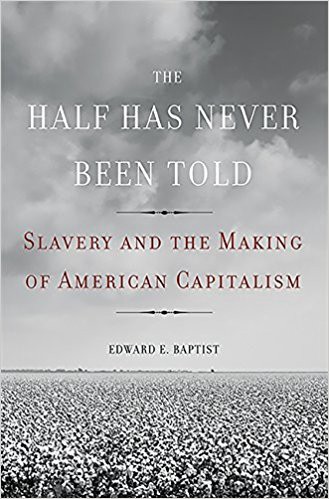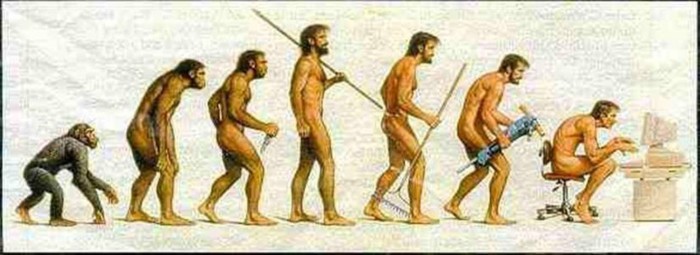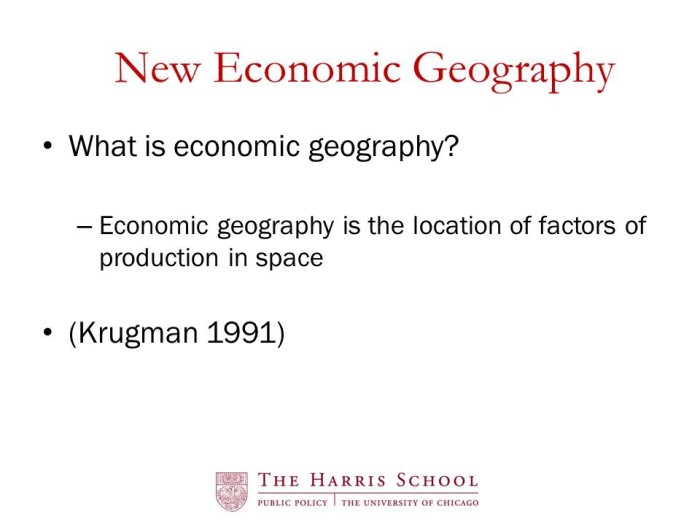In February 1843, entrepreneur Hughes Lavergne to a ferry from New Orleans across the Mississippi River to Algiers point, where he sat in his family’s cemetery and wrote a suicide letter before ending “his financial career by stabbing himself in the heart.” A state representative and banker by trade, Lavergne helped revolutionize domestic and international banking by “leveraging plantations and bondspersons (slaves)” so that slaveholders could raise capital by allowing them to “access… bank credit that would help [them] buy thousands of enslaved people, hundreds of cotton and sugar plantations, and improvements such as refineries.”
Economist Michael Hudson, among other scholars, view finance capitalism as a threat to democracy and the overall economy itself. Finance capitalism, according to Hudson, leads to more economic crisis than product oriented capitalism. He also argues that the financial trend began in the 1970s along with stagflation and supply side economics. Although finance capitalism might have become more prevalent since the 1970s, it was around a lot longer. In the early 19th century, for instance, Southern Americans mortgaged their plantations and slaves to procure more land and slaves, thereby expanding slavery in the South West (Louisiana, Alabama, etc.). The great domestic migration of African slaves from the East coast to the South West, which Edward Baptist discusses in The Half Has Never Been Told, was funded by finance capitalism and the mortgaging of property and slaves. Just like in the 2008 housing bubble, this early form of finance capitalism also lead to a bubble that also burst, but not before it revolutionized American and international banking. The story of Hughes Lavergne, as told by (), reveals “the integration of international financial sectors at the heart of ear United States economic development.”
Schermerhorn’s “Bank Bonds and Bondspersons” reveals several important qualities of slavery in relation to the development of America in the early nineteenth century (1920s-1930s). For instance, he reveals that state’s role in financing and expanding slavery by securing financial institutions. He also shows the dual status slaves held as both laborers and property, whereby owners could mortgage. Lavergne’s created a record of mortgages in the state of Louisiana, thereby expanding the state’s overview of its internal financial dynamics. “Bank Bonds and Bondspersons” also provides insight into early finance capitalism and subsequent bubbles that continue today.
Joshua Rothman’s Flush Times and Fever Dreams: a Story of Capitalism and Slavery in the Age of Jackson (2012), provides a provocative background to the story of Hughes Lavergne and Consolidated Association, which expands our understanding of these ‘flush times’ in America. For instance, Rothman writes that “in the early 1830s” America thrived with “technological advances, infrastructural improvements” and expansion into Choctaw and Chickasaw land, leading to the trail of tears. This opened land that would be settled primarily by cotton producers as the “southwestern frontier (Georgia, Alabama, Mississippi, and Louisiana) possessed some of the most fertile soil on the continent for growing cotton.” British demand for textiles was reaching its height as its industrial revolution turned raw goods into textiles. “Cotton crops brought to market by southwestern growers swelled capital accumulation that accelerated national economic development, furthered the rising position of the U.S. as a global power and cemented cotton’s place as the most significant commodity on earth.”
Along with these so-called ‘advances,’ and the subject of Schermerhorn’s “Bank Bonds and Bondspersons,” came “increased money supply and government policies that enabled rapidly proliferating state and local banks to unleash a deluge of paper notes and liberal loans.” These were ‘flush times’ for white Americans. For contemporaries, it seemed that there was limitless pools of money and access to credit with few questions asked.” “Everyman had a scheme for realizing a fast fortune,” and Lavergne helped make the requisite institutions to realize these dreams a reality through his bank Consolidated Association.
Lavergne worked for Consolidated Association, a new bank, and he sought to get the backing of Thomas Baring in England, a credible capitalists with plenty of social capital and trust. If Lavergne could get Baring’s backing, he could help inject finances into Louisiana’s agriculture and agricultural related enterprisers, such as refineries. At the time—c.mid 1820s—Lavergne was interested in increasing sugar production, although finances would also go on to help the cotton industry. He worked as a notary on Charters St. in New Orleans, which gave him insight into the demand for credit. Notaries recorded transactions of property including that of slaves and other property. Schermerhorn states, “they [notaries] kept a large storehouse of information as they recorded deeds, sales, mortgages, and other transactions.”
Banks generally lent to commercial entities—not agricultural endeavors for obvious reasons. Lavergne, however, needed to create security or at least the appearance of security to induce Baring to invest. His ideas revolutionized the transparency of mortgages to the state. For instance, he convinced Louisiana State legislatures to record the mortgages held in the state, thereby providing a proverbial catalog of collateral to investors, which offered them security and offered creditors with financial opportunities. He most likely got the idea while working as a notary—noted above—and he bragged to Baring “‘that this was the first time in Louisiana that title to property were thoroughly investigated,’ thanks to Consolidated Association.”
Before Lavergne set off for England to finalize the deal with Baring, Baring had been to New Orleans and he liked what he saw, but he wanted more security than Consolidated Association had originally offered. Therefore, Consolidated Association approached the state to further secure the deal. Schermerhorn writes that “the state of Louisiana saved the bank (Consolidated Association) and became its principle backer… Lavergne and his allies persuaded the legislature to revise the bank’s charter so that the state would meet its bond obligations should Consolidated Association go bankrupt.” “The state issued 2.5 million in state bonds payable by the Consolidated Association at 5% interest.” The state’s decision was part of a wider federal program to protect domestic industries against foreign companies, such as the importation of sugar from the West Indies and Cuba. West Indies sugar production was unstable because Britain was considering outlawing slavery, which placed the West Indies in a precarious position for investors. In fact, the American financial and banking revolution at the time was predicated on slavery because most other countries were moving away from slave based production.
When Lavergne arrived in England, Baring Brothers drove a hard bargain and made stipulations that benefited the Barings. The Barings wanted the interest paid in sterling rather than dollars and the Barings also wanted to buy the bonds at a 5% discount. Lavergne agreed, because it gave Consolidated Association prestige. “The linchpin of a new financial scheme was in place and Baring Brothers’ bills of exchange would fund slavery’s expansion in Louisiana…Lavergne and Consolidated Association had, with the backing of Louisiana, turned lands and leaves into paper—paper that was readily convertible into gold.”
Under the Jackson administration business thrived and grew. At this time the cotton industry was booming and the domestic slave diaspora from the East coast to the SouthWest (New Orleans) was booming. “Banks lent to cotton factors as well as to sugar interests, and the rising tide lifted their vessels and demands for banking facilities.” Barings interests in New Orleans commerce grew and with it a plethora of banking schemas opened throughout the U.S.
Mortgages multiplied by the dozens and property values increased. Same Watts, a slave on the east coast tidewater. He like so many other slaves at the time was shipped from the East coast to the South as cotton boomed. Watts was a mortgagee who produced great amounts of credit and investment for his owner Rice C. Ballard. The domestic slave trade of which Watts was a part was founded “on a sea of credit and a federally protected slave market.” Increasing demand “for commodities grown chiefly by enslaved Americans were helping fuel domestic demand for slaves.” “In the 1830s the slave trade surged nearly 84% over the previous decade.” Watt’s was bought for twice what Ballard purchased him for. He found himself at work in a sugar refinery, where he “was at the center of a web of finance that gave competitive advantages to Louisiana sugar producers. On an international level, transactions. Centering on Sam Watts involved British merchant bankers and European investors buying state securities…”. Watt’s body produced credit and financial income outside of what he produced physically. This is the irony and crux of slavery and American capitalism. African bodies were mortgaged to purchase more land and more slaves.
But the bubble began to rub apart at its seems. From 1835 to around 1837, credit expanded quicker than actual “economic capacity” i.e. speculation got ahead of itself. The Baring Brothers lost confidence. “The sharp downturn in cotton and other commodity prices affected slave and land prices as well as merchants and everyone else up the supply chain.” Banks had not diversified nor had they created means to build reputations that people could trust. There was a no federal mandate, not FDIC, and states were generally left to their own devices, which faltered with commodity prices. The 1840s spelled hard times for capitalist—North, South, and across the Atlantic.
“As debtors sold out and creditors seized property, financial transactions converging on enslaved people like Same Watts assumed tragic proportions. Desperate slaveholders continued to mortgage slaves./. Creditors bore the financial risk, but enslaved people paid the real costs of bad debt with shattered families and shortened lives.”
Mississippi banks failed and did not “honor its commitments,” some debtors fled to Texas. The Democratic Party went on an anti-bank tirade and undermined banks across the U.S. This bad repair with foreign banks was not forgotten when the South succeeded from the North and sought foreign investment. Britain and France did not forget the unsound schemes of the South.
Louisiana forced Consolidated Associates to close. Lavergne could not cope. He traveled across the Mississippi River to Algiers where he plunged a sword through his chest. His obituary read: “a gentleman of great amenity and elegance of manners, of distinguished connections and in addition to the advantages of his elevate social position, he possessed the unqualified confidence and esteem of our business community.”





















